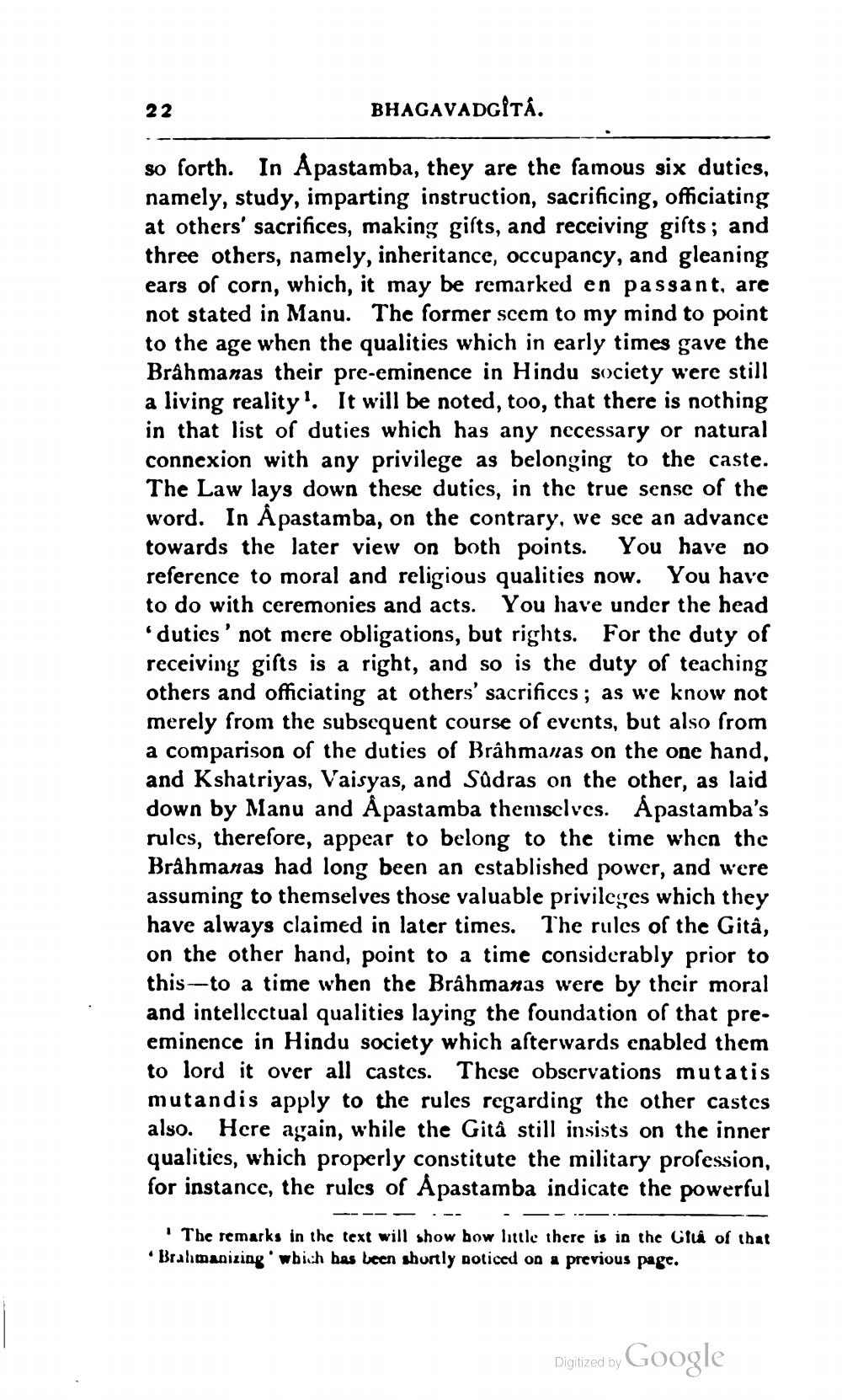________________
22
BHAGAVADGITÁ.
so forth. In Apastamba, they are the famous six duties, namely, study, imparting instruction, sacrificing, officiating at others' sacrifices, making gifts, and receiving gifts; and three others, namely, inheritance, occupancy, and gleaning ears of corn, which, it may be remarked en passant, are not stated in Manu. The former scem to my mind to point to the age when the qualities which in early times gave the Brahmanas their pre-eminence in Hindu society were still a living reality'. It will be noted, too, that there is nothing in that list of duties which has any necessary or natural connexion with any privilege as belonging to the caste. The Law lays down these duties, in the true sense of the word. In Apastamba, on the contrary, we see an advance towards the later view on both points. You have no reference to moral and religious qualities now. You have to do with ceremonies and acts. You have under the head
dutics' not mere obligations, but rights. For the duty of receiving gifts is a right, and so is the duty of teaching others and officiating at others' sacrifices; as we know not merely from the subscquent course of events, but also from a comparison of the duties of Brahmanas on the one hand, and Kshatriyas, Vaisyas, and Sadras on the other, as laid down by Manu and Åpastamba themselves. Åpastamba's rules, therefore, appear to belong to the time when the Brahmanas had long been an established power, and were assuming to themselves those valuable privileges which they have always claimed in later times. The rules of the Gitâ, on the other hand, point to a time considerably prior to this-to a time when the Brâhmanas were by their moral and intellectual qualities laying the foundation of that preeminence in Hindu society which afterwards cnabled them to lord it over all castcs. These obscrvations mutatis mutandis apply to the rules regarding the other castes also. Here again, while the Gitå still insists on the inner qualities, which properly constitute the military profession, for instance, the rules of Apastamba indicate the powerful
---
---
-
-
-
--
The remarks in the text will show bow little there is in the Gfua of that • Brahmanizing which has been shortly noticed on a previous page.
Digitized by Google




